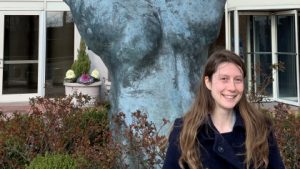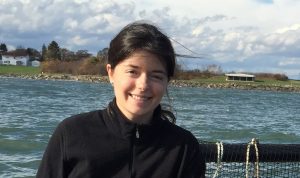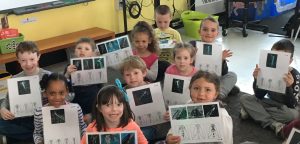Search results for: REGVIP how to get betwinner promo code Chile
WHOI-W-91-001 WHOI U.S. Strategies for Coo
WHOI-W-91-001 WHOI U.S. Strategies for Coo
Read MoreKnauss Fellow Profile: Amanda Dwyer
Amanda Dwyer, a 2020 Knauss Fellow, might not be having the typical fellowship experience, due to COVID-19 outbreak and the need to shelter in place, but she’s not letting that stop her work as a Marine Debris Program Specialist, focusing on a new zero waste initiative for National Ocean Service (NOS) offices. The zero waste…
Read MoreMarine Nonfuel Minerals in the U.S. Exclusive Economic Zone: Managing Information as a Resource
Marine Nonfuel Minerals in the U.S. Exclusive Economic Zone: Managing Information as a Resource Broadus, J.M. and P. Hoagland Ocean and Shoreline Management, Vol. 13, No. 3 & 4, pp. 275-294, 1990 WHOI-R-90-023
Read MoreAn Ethogram of Body Patterning Behavior in the Biomedically and Commercially Valuable Squid Loligo pealei off Cape Cod, Massachusetts
An Ethogram of Body Patterning Behavior in the Biomedically and Commercially Valuable Squid Loligo pealei off Cape Cod, Massachusetts Hanlon, R.T., M.R. Maxwell, N. Shashar, E.R. Loew, and K.-L. Boyle Biol. Bull., Vol. 197, pp. 49-62, 1999 WHOI-R-99-005
Read MoreSea Grant Two if by Sea Vol. 8 No. 2 A joint n
Sea Grant Two if by Sea Vol. 8 No. 2 A joint n
Read MoreWHSeaGrant-fisheries2000-2006
WHSeaGrant-fisheries2000-2006
Read MoreTips on Tuna Handling
Tips on Tuna Handling Helpful to educators and students. White, A.W. 2 pp., 1988 WHOI-G-88-001 The value of the bluefin tuna fishery is driven largely by the high demand for top-quality, fresh tuna for the Japanese market. Fresh bluefin tuna is most valuable when the fat content is high (generally between the end of July…
Read MoreHurricanes
Hurricanes Though it has been 30 years since the last major hurricane struck the Massachusetts coast, hurricanes can be devastating and they can happen here! Be smart and prepare yourself, your family and your home to minimize losses from a hurricane. https://seagrant.whoi.edu/wp-content/uploads/2020/04/Hurricanes_in_New_England.mp4 Preparing for a Hurricane in New England *From Homeowner’s Handbook to Prepare for…
Read MoreKnauss Profile: Amalia Aruda Almada
Amalia Aruda Almada has long had an interest in the connection between ocean science and public health. As an undergraduate at Georgetown University, Almada had read about the oceanographer and microbiologist Rita Colwell, who was the first scientist to show that freshwater copepods—barely visible …
Read MoreCoasts, Oceans, and Stewardship Program Gets Kids Excited about Marine Science
In January 2018, Woods Hole Sea Grant launched an educational partnership with the NOAA Northeast Fisheries Science Center (NEFSC). The Coasts, Oceans, and Stewardship (COAST) Program brings current marine science research to local classrooms with exciting, hands-on lessons aimed at increasing students’ awareness and enjoyment of their coastal resources. With this partnership, the program expands…
Read More


